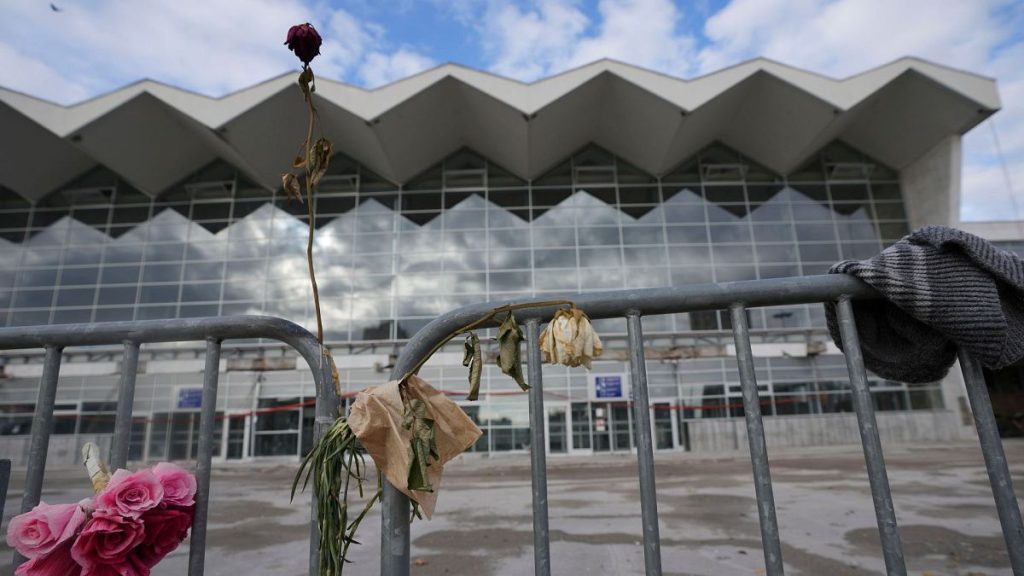The collapse of a concrete canopy at a railway station in Novi Sad, Serbia, on November 1, 2023, resulting in the tragic loss of 15 lives, has ignited a firestorm of public outrage and triggered weeks of anti-government demonstrations. The incident, which initially claimed 14 lives with three injured, later saw the death toll rise to 15 as one of the injured succumbed to their wounds in hospital. This catastrophe has not only brought immense grief to the affected families but also served as a catalyst for widespread discontent against President Aleksandar Vučić and his administration, with accusations of corruption, negligence, and substandard construction practices fueling the flames of public anger. The incident has cast a harsh spotlight on the alleged erosion of democratic principles and the perceived prioritization of political expediency over public safety in Serbia.
The Serbian public prosecutor’s office responded to the growing public outcry by announcing the indictment of 13 individuals in connection with the canopy collapse. Among the accused is former Construction Minister Goran Vesić, along with other officials and contractors involved in the station’s recent renovations. The charges levied against them include severe criminal offences against public safety and irregular execution of construction work, carrying potential prison sentences of up to 12 years if convicted. The indictment alleges that the accused knowingly compromised safety standards and employed improper construction practices, leading directly to the fatal collapse of the canopy. This legal action marks a significant development in the case, although its ultimate impact will depend on the court’s validation of the indictment and the subsequent trial proceedings.
The railway station in Novi Sad, where the tragedy occurred, had undergone two renovations in recent years as part of an infrastructure agreement with Chinese companies. This detail has further fueled public suspicions of corruption and inadequate oversight, with many believing that corners were cut and safety protocols ignored in pursuit of political and financial gains. The fact that the former Construction Minister is among the accused adds weight to these allegations, raising questions about the extent of potential government involvement in the alleged malpractice. The public’s trust in the government’s commitment to ensuring public safety has been severely eroded, and the incident has become a symbol of the perceived decay of accountability and transparency within the ruling elite.
The indictment process is still in its early stages, and the accused individuals await the court’s validation before the trial can commence. Prosecutors in Novi Sad have requested the detention of the accused during the trial, a move that could be interpreted as an attempt to assure the public of the seriousness with which the case is being pursued. However, the prior detention and subsequent release of former Minister Vesić has sown seeds of doubt regarding the integrity of the investigation and the independence of the Serbian judiciary. This scepticism underscores the deep-seated mistrust many citizens harbor towards the government and its institutions. The timing of the trial remains uncertain, and its proceedings will be closely watched by the public and international observers alike.
Adding further complexity to the political landscape, Serbia is currently grappling with ongoing street protests and a university student strike, both of which directly challenge President Vučić’s authority. These demonstrations reflect a broader discontent with Vučić’s leadership and his perceived authoritarian tendencies. Although he publicly champions Serbia’s aspirations for European Union membership, critics accuse him of undermining democratic freedoms and consolidating power, creating a growing tension between his stated pro-European stance and his actions on the ground. The canopy collapse and its aftermath have served to amplify these criticisms and further galvanize the opposition against his rule.
The unfolding events in Serbia highlight a critical juncture for the country’s political future. The tragic canopy collapse and the subsequent indictment of government officials and contractors have exposed deep-seated concerns about corruption, lack of transparency, and the erosion of democratic values. The ongoing protests and student strikes signal a growing public dissatisfaction with the status quo and a demand for greater accountability from the government. The outcome of the impending trial, coupled with the government’s response to the ongoing public unrest, will undoubtedly shape the trajectory of Serbia’s political landscape in the months and years to come. The world will be watching closely as Serbia navigates this turbulent period and grapples with the complex challenges that lie ahead.














